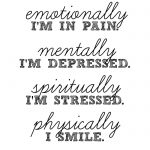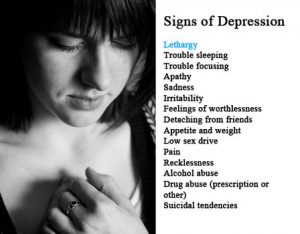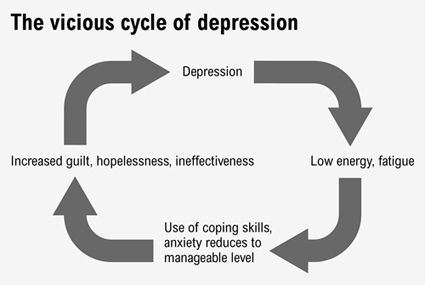 Depression is more than feeling sad, moody or low from time to time. Depression is a serious condition that affects your feelings, thoughts, moods, and behaviours. You can experience these feelings intensely, for longer periods of times (weeks, months, or even years) and sometimes for no apparent reason.
Depression is more than feeling sad, moody or low from time to time. Depression is a serious condition that affects your feelings, thoughts, moods, and behaviours. You can experience these feelings intensely, for longer periods of times (weeks, months, or even years) and sometimes for no apparent reason.
What causes this mood disorder varies from person to person.
If you feel down, miserable or sad for more than two weeks, most of the time, and may have lost interest or pleasure in the usual activities you undertake, and have at least three of the following, it is important that you visit your doctor for assessment and treatment.

Signs and Symptoms
- Behaviour (e.g. withdrawing, turning to alcohol and sedatives, unable to concentrate, recklessness, detachment)
- Feelings (e.g. irritable, unhappy, overwhelmed, sad)
- Thoughts (e.g. I’m a failure, I’m worthless, Life’s not worth living/suicidal)
- Physical (e.g. tired all the time, sleep problems, loss or change of appetite, significant weight loss or gain, low sex drive, pain)
There are different types of depressive disorders with symptoms ranging from relatively minor (but still disabling) right through to very severe. Some commonly known types of this mood disorder are Major Depression (aka Clinical), Postnatal Depression, Melancholia, Bipolar Disorder (aka Manic), and Seasonal Affective Disorder. Each disorder has its own range of symptoms and signs and level of affect, therefore it is important that you should see your doctor for assessment and treatment.

Depression is more than just having a low mood. It is a serious condition that affects both your physical and mental health.
Counselling and Psychotherapy can help you change your thinking patterns and improve your coping skills so that you are better equipped to deal with life’s stresses and conflicts.
If you have any questions or would like to make an appointment, please contact us on 8448 1106.
